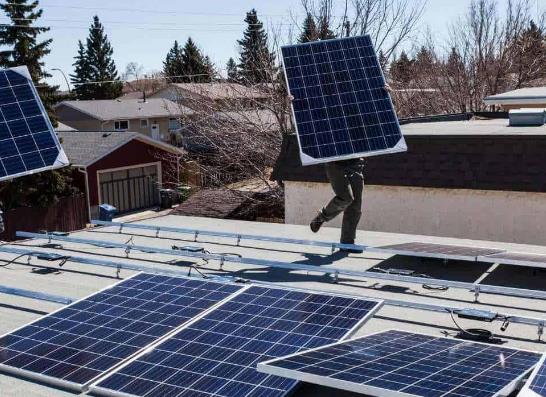Optimal Number of Solar Panels for Refrigerator Operation
Ensuring your refrigerator is continuously powered is a crucial aspect of daily living, and solar power offers an eco-friendly solution to achieve this. However, calculating the optimal number of solar panels required to run a refrigerator involves understanding both the energy demands of the appliance and the energy production capabilities of solar panels. Let's delve into the specifics to find out the precise setup needed.

Refrigerator Energy Consumption
A critical piece of this puzzle is the amount of power a refrigerator consumes. On average, a modern, energy-efficient refrigerator requires about 1 to 2 kWh per day. This consumption rate can fluctuate based on factors such as the fridge's size, its efficiency rating, and how frequently it's accessed.
Solar Panel Energy Production
Solar panels are rated by their wattage output under ideal conditions. For instance, a 100W solar panel is capable of producing 100 watts of power per hour under peak sunlight. However, the actual energy a panel produces daily can vary greatly depending on geographic location, the time of year, and installation specifics. On average, a 100W panel can generate approximately 0.4 to 0.5 kWh of energy in a day with about 4 to 5 hours of peak sunlight.
Calculating the Number of Panels Needed
Given the average energy production of a 100W solar panel and the daily energy consumption of a refrigerator, you would need approximately 2 to 5 panels to ensure your refrigerator runs smoothly without interruption. This range accounts for less-than-ideal conditions and aims to provide a buffer for days with less sunlight or increased fridge usage.
Additional System Components
Beyond the panels themselves, a fully functional solar system for refrigerator operation also includes:
- Battery Storage: To keep the refrigerator running during the night or on cloudy days, adequate battery storage is vital. The capacity should be large enough to store at least one day's worth of the refrigerator's energy consumption.
- Inverter: Since refrigerators operate on AC power and solar panels produce DC power, an inverter is necessary to convert the electricity to a usable form.
Real-World Considerations
It's important to remember that solar energy production is subject to real-world conditions. Factors such as shading, panel angle, and weather can all impact the actual amount of power your solar panels generate. Therefore, it might be prudent to overestimate your needs slightly to ensure reliability.
How many solar panels to run refrigerator?
In conclusion, powering a refrigerator with solar panels is definitely within the realm of possibility. For most households, a setup consisting of 2 to 5 average-sized solar panels, coupled with a battery storage system and an inverter, should suffice. This setup not only ensures that your food stays fresh but also aligns with a sustainable lifestyle, reducing reliance on non-renewable energy sources.
Tailoring the number of panels to your specific situation — taking into account your refrigerator's efficiency, your location's solar potential, and your system's components — will provide the most accurate and efficient solar power solution for uninterrupted refrigerator operation.